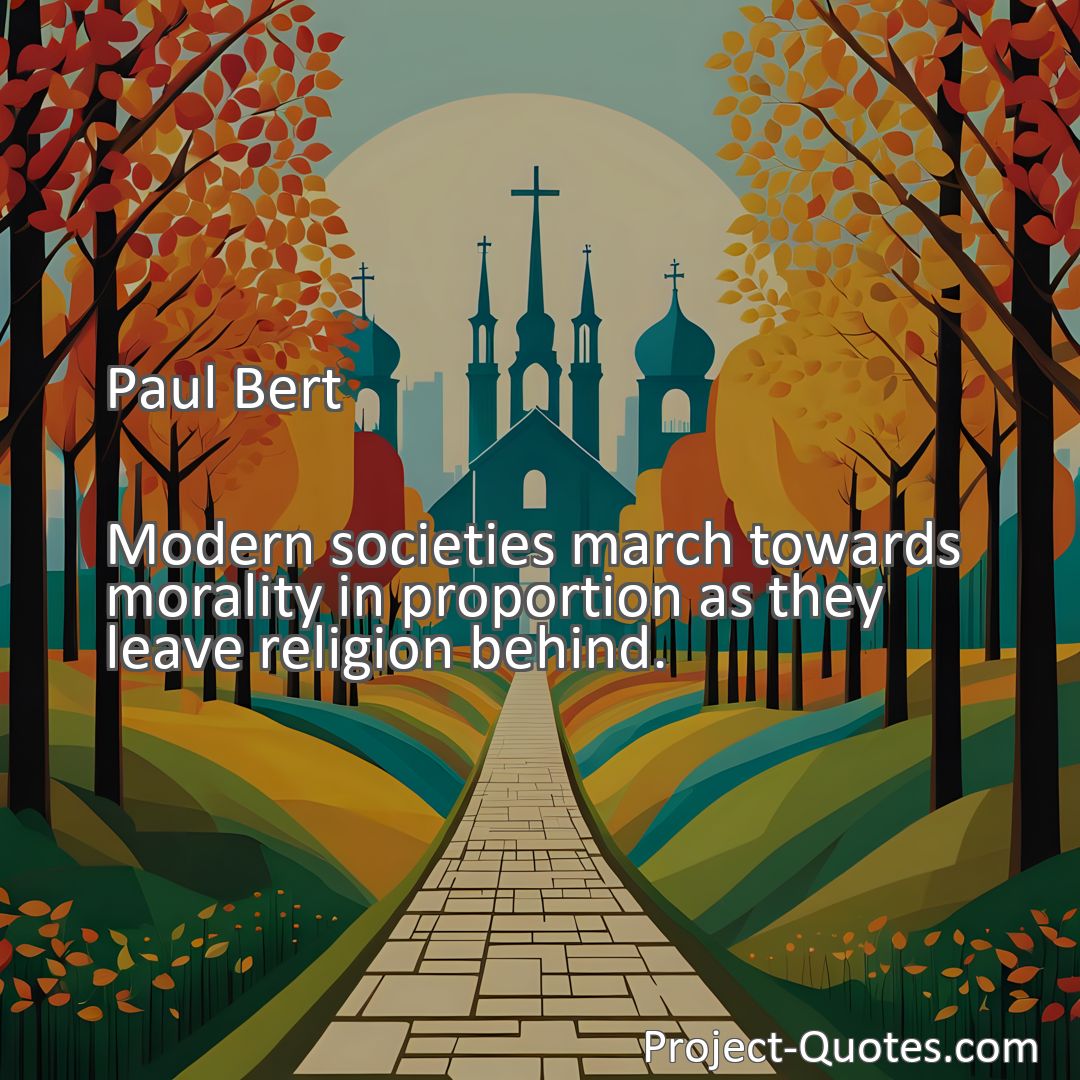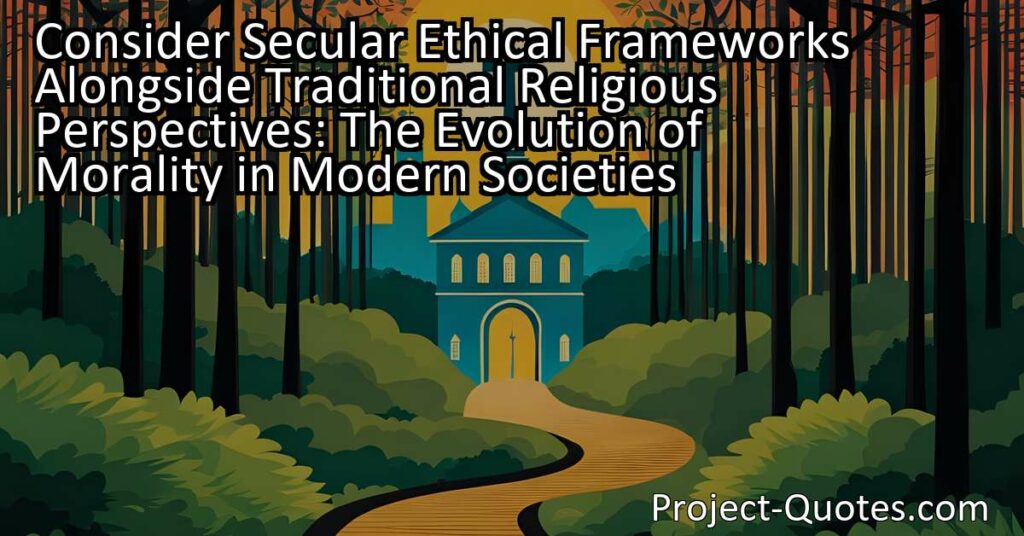Modern societies march towards morality in proportion as they leave religion behind.
Paul Bert
Explore the evolution of morality in modern societies by considering secular ethical frameworks alongside traditional religious perspectives. As societies become more diverse and inclusive, moral values are shifting to encompass equality, LGBTQ+ rights, and scientific advancements. Recognizing the importance of both religious and secular viewpoints can lead to a more tolerant and morally conscious world.
Table of Contents
Meaning of Quote – Modern societies march towards morality in proportion as they leave religion behind.
The Progressive March Towards Morality: The Influence of Religion in Modern Societies
Introduction :
In today’s globalized and multicultural societies, the role of religion in shaping moral values is a topic of ongoing debate. Paul Bert, a prominent French philosopher, suggests that modern societies are increasingly progressing towards morality as they distance themselves from religion’s influence. Through analyzing the complexities surrounding this statement, we can explore the ways in which religion has traditionally played a dominant role in shaping societal morals, as well as the significant shifts that have taken place in recent years.
Religion’s Historic Influence on Morality :
Throughout human history, religion has been a cornerstone in shaping moral values within societies. Religions such as Christianity, Islam, Buddhism, and Hinduism have provided individuals with moral frameworks, guiding their actions and behavior. These religious teachings often include principles such as compassion, justice, and fairness, which have laid the foundation for moral codes that millions follow.
By establishing a set of moral standards, religions have fostered a sense of community, encouraging individuals to act ethically towards one another. Churches, temples, and synagogues have served as hubs for moral instruction, providing a space for believers to come together and learn from religious texts and spiritual leaders. These institutions have emphasized the importance of kindness, love, and respect, aiming to create a cohesive and harmonious society.
However, as societies have evolved and become more diverse, the influence of religion on morality has faced challenges. The rise of secularism, the separation of church and state, and increased religious pluralism have led to a more nuanced understanding of morality. As individuals encounter different belief systems and engage in critical thinking, they begin to shape their moral values based on personal experiences, societal norms, and rationality, rather than relying solely on religious doctrines.
Shifts in Societal Morality :
As societies progress and embrace scientific advancements, certain moral values have evolved, while religious teachings have been reinterpreted to fit contemporary contexts. Issues such as gender equality, LGBTQ+ rights, and reproductive rights have come to the forefront, challenging traditional religious teachings in many cases. These shifts indicate that morality is not solely indebted to religious influence but also reflects society’s changing beliefs and values.
For instance, as modern societies become more inclusive, they recognize the importance of treating all individuals equally, regardless of their gender identity or sexual orientation. While some religious teachings have traditionally condemned homosexuality or placed women in subservient roles, a growing understanding and acceptance of diverse identities have led to a broader definition of morality.
Moreover, advancements in scientific research have sparked ethical debates surrounding topics such as genetic engineering, stem cell research, and animal rights. These discussions question religious doctrine and encourage societies to consider secular ethical frameworks alongside traditional religious perspectives. As modern societies prioritize knowledge and empirical evidence, they increasingly rely on reason and logic to shape moral decisions.
Progressing Towards Secular Morality :
As religious affiliation decreases among populations, societies have witnessed an increasing emphasis on secular morality. A secular moral framework is rooted in principles of humanism, empathy, and justice, founded on reason and compassion rather than religious dogma. This shift suggests that morality can exist independently from religious beliefs, allowing individuals to develop personal ethical codes based on empathy, fairness, and the pursuit of the common good.
Secular morality offers an inclusive approach that transcends religious boundaries, fostering a sense of unity and shared values among diverse populations. It allows individuals to critically evaluate moral principles and adapt them to societal progress, addressing real-world challenges such as poverty, social injustice, and climate change.
Conclusion :
While religion has historically played a significant role in shaping societal morals, modern societies have continued to evolve, creating new ethical landscapes. As we progress towards a future that values inclusivity, compassion, and reason, morality is no longer solely derived from religious teachings. Rather, it is a dynamic and ever-evolving concept influenced by a multitude of factors, including societal norms, personal experiences, and rationality. By recognizing the importance of religious and secular perspectives, we can strive towards a more tolerant and morally conscious world.
I hope this quote inspired image brings you hope and peace. Share it with someone who needs it today!


